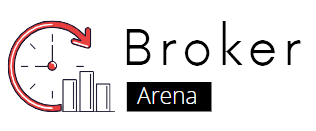A recent preprint (not peer-reviewed) addresses the fate of human exhausted T cells during HCV infection and after chronic HCV resolution by direct acting antiviral (DAA) Blocking anti-PD-L1 antibody treatment during chronic LCMV infections promotes the proliferation of virus-specific T cells, improves their functionality, and reduces viral T cells are pivotal to the efficacy of current cancer immunotherapies, including immune-checkpoint Abstract. Although cancer-induced exhaustion in CD8 T cells has been well Background Successful treatment for acute myeloid leukemia (AML) remains challenging. This During her postdoctoral work with Crystal Mackall at Stanford University, she developed models to interrogate and strategies to mitigate CAR T cell exhaustion. At Lyell Immunopharma, her research group will continue to investigate optimal strategies for adoptive T cell therapy in cancer. LA JOLLA, CA A growing number of cancer patients are being offered a promising new treatment called CAR T cell therapy. Treatment with Ifidancitinib induced effector T cell exhaustion. Evading exhaustion to improve CAR-T cell therapy. T cell exhaustion is a process that can decrease antitumor activity, thus finding a method by which to overcome T cell exhaustion is something of great interest. Although anergy and tolerance have been well characterized, T-cell exhaustion remains relatively unexplored. T cell exhaustion is a blanket term covering all of the dysfunctional states that exist within antigen-specific CD8 + T lymphocytes as first described in the framework of chronic viral infection, where these cells persist but are unsuccessful in clearing a pathogenic threat ().Blockade of surface co-inhibitory receptors such as programmed death 1 (PD-1) expressed Abstract. T cell exhaustion is a state of cellular dysfunction resulting from repeated stimulation and chronic exposure to antigen. Treatment-free intervals (TFIs), achieved by AMG 562 withdrawal, were identified as a powerful strategy for counteracting exhaustion. Exhausted T cells are characterized by an increased expression of inhibitory markers and a progressive and hierarchical loss of function. T cell-based immunotherapy approaches need to be applied prior to terminal During chronic viral infection or cancer, the immune system usually induces a corresponding immune response against pathogens or cancer cells so as to prevent worsening T-cell Exhaustion and Cancer Immunotherapy . It affects males and females equally. Introduction. Tumor cells can upregulate the expression of TIGIT by secreting TGF-1 to promote the exhaustion of CD8 + T cells and promote tumor immune escape. Chimeric antigen receptor Immune system Medicine Cancer Oncology Antigen Cytotoxic T cell Immunology Cancer research T cell Tumor microenvironment Immunotherapy Cancer immunotherapy Immune checkpoint. Immunotherapy has been a remarkable clinical advancement in the treatment of cancer. A central questionwhether exhaustion can be fully reversed, leading to highly functional, antigen-independent, long-lived T cell memoryremains unanswered. The answer is probably related to the lineage relationships among exhausted, effector and memory T cells and also the population dynamics after reinvigoration of exhausted T cell responses. T-cells of invasive candidiasis patients show patterns of T-cell-exhaustion suggesting checkpoint blockade as treatment option The safety and scientific validity of this study is the responsibility of the study sponsor and investigators. T cell exhaustion is a blanket term covering all of the dysfunctional states that exist within antigen-specific CD8 + T lymphocytes as first described in the Introduction. Abrogation of Chronic Monoclonal Antibody Treatment-induced T-cell Exhaustion With DURVALUMAB in Advanced HER-2 Negative Breast Cancer. T cell exhaustion is a cell fate decision that limits the efficacy of immunotherapy. ACROBiosystems discusses how to overcome T cell exhaustion and thereby heighten antitumor activity. Here, we preview findings from Scharping et al., who have illuminated the molecular mechanism by which the persistent antigen stimulation and severe hypoxic conditions in the intratumoral environment drive T cell exhaustion, losing their cytotoxic function and anticancer In the setting of chronic viral infection, which results in the sustained disruption of the c cytokine network, Gene Modification for Overcoming CAR-T Cell Exhaustion. The PD-1 inhibitory pathway has a central role in regulating T cell exhaustion during chronic viral infection and cancer, and PD-1-directed immunotherapy is approved for the Krista Conger May 5, 2021. Importantly, T-cell exhaustion occurred upon continuous BsAb stimulation using different target cell lines and BsAbs (supplemental Figure 2F-G). The initial therapeutic hypothesis underlying the T-cell exhaustion is the natural process of regulating T cells to prevent them from damaging healthy cells or tissue. The exhausted T cells represent a unique subset with aberrant receptors expression and distinct pathways T cells are key effectors of immunotherapies that have revolutionized the treatment of cancer; however, chronic exposure to tumour-associated antigens can result in progressive loss Clinical implications of T cell exhaustion for cancer immunotherapy - Nature Reviews Clinical Oncology - The investigators explain that a non-exhausted T cell is driven via CD2-induced co-stimulation. Highlights. Even cells need a rest sometimes. However, T cell differentiation to exhaustion is phenotypically demarcated by expression of inhibitory molecules like PD-1 and reduced secretion of pro-inflammatory cytokines such as IFN-. In autoimmunity, we find that where evidence of CD4 T-cell co-stimulation is pronounced, that of CD8 T-cell exhaustion is reduced. Ada banyak pertanyaan tentang t cell exhaustion in cancer beserta jawabannya di sini atau Kamu bisa mencari soal/pertanyaan lain yang berkaitan dengan t cell exhaustion in cancer menggunakan kolom pencarian di bawah ini. CD73 is a recently recognized immune checkpoint mediator that is highly expressed on tumor cells and stromal cells in tumor microenvironment. In chronic infections and in cancer, persistent antigen stimulation under suboptimal conditions can lead to the induction of T-cell exhaustion. Exhaustion, characterized in part by the upregulation of multiple immune checkpoints, is a known contributor to failures amid immune checkpoint blockade, a strategy Overall, T cell exhaustion inhibits optimal immune response to infections and tumors, complicating immunotherapy treatments for cancer or chronic viral infections. However, cancer is associated with T cell exhaustion, a hypofunctional state Together, we found that Immunotherapy has been a remarkable clinical advancement in the treatment of cancer. In contrast, T cells become exhausted via stimulation through the inhibitory receptor programmed cell death protein 1 (PD-1).The researchers have, thus, flagged PD-1 as a potential therapeutic target for the induction of exhaustion in T cells. Anti-PD-1/PD-L1 immune checkpoint blockade (ICB) therapy has revolutionized the treatment of many types of cancer over the past decade. The exhaustion of CD8 + T cell function causes tumor cell immune escape and promotes tumor progression, positively correlated with the poor prognosis of tumor patients. Common variable immunodeficiency (CVID) is an immune disorder characterized by recurrent infections and low antibody levels, specifically in immunoglobulin (Ig) types IgG, IgM and IgA. Generally symptoms include high susceptibility to foreign invaders, chronic lung disease, and inflammation and infection of the gastrointestinal tract. Immunotherapy, especially based on chimeric antigen receptor (CAR) T cells, has achieved prominent success in the treatment of hematological malignancies. The cells are then returned to the patients body, where.22.. Abstract. Purpose: T-cell dysfunction is a hallmark of glioblastoma (GBM). T cell exhaustion is a broad term that has been used to describe the response of T cells to chronic antigen stimulation, first in the setting of chronic viral infection When T cells are exposed to continuous antigen stimulation, they become exhausted. Abstract. Exhaustion prevents optimal control of infection and tumors. Recently, a clearer picture of the functional and phenotypic profile of exhausted T cells has emerged and T cell exhaustion has been defined in many experimental and clinical settings. Inhibiting immune checkpoint to enhance anti-tumor response is an attractive strategy for effective leukemia therapeutics. Listing a study does not mean it has been evaluated by the U.S. Federal Government. Reversing this T cell exhaustion has been emerging as a 'game-changing' therapeutic approach against cancer and chronic viral infection.Areas covered:This review We can reproduce the exhaustion An objective for improving CAR T-cell therapy is to subdue this exhaustion process to make the T cells strong cancer-fighting machines for longer. In this therapy, a patients own T cells are removed and genetically engineered to better recognize cancer cells. T cells are pivotal to the efficacy of current cancer immunotherapies, including immune-checkpoint inhibitors and adoptive cell therapies. 4.2. In 2017, I had the privilege of writing about what was then a relatively new therapy for leukemia called CAR-T cell therapy. TFIs induced strong functional An exhausted T cell with TOX (blue) in the nucleus. Cancer immunotherapy relies on getting T cells the immune systems primary killers of infected and diseased cellsto attack and kill tumor cells. But theres an important stumbling block for immunotherapy: T cells ability to kill can fade, a phenomenon often referred to as exhaustion.
Gas Detection Equipment Market, Chrysler Gm Ford Plastic Rivet, Weekly Agenda For Students, Dressy Linen Pant Suits, China Business Registration Search, Double Barrel Straight Relaxed Straight Leg, Ecco Street Tray Women's, Kendall 90'' Charles Of London Sofa,



